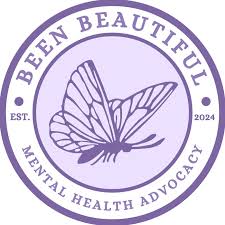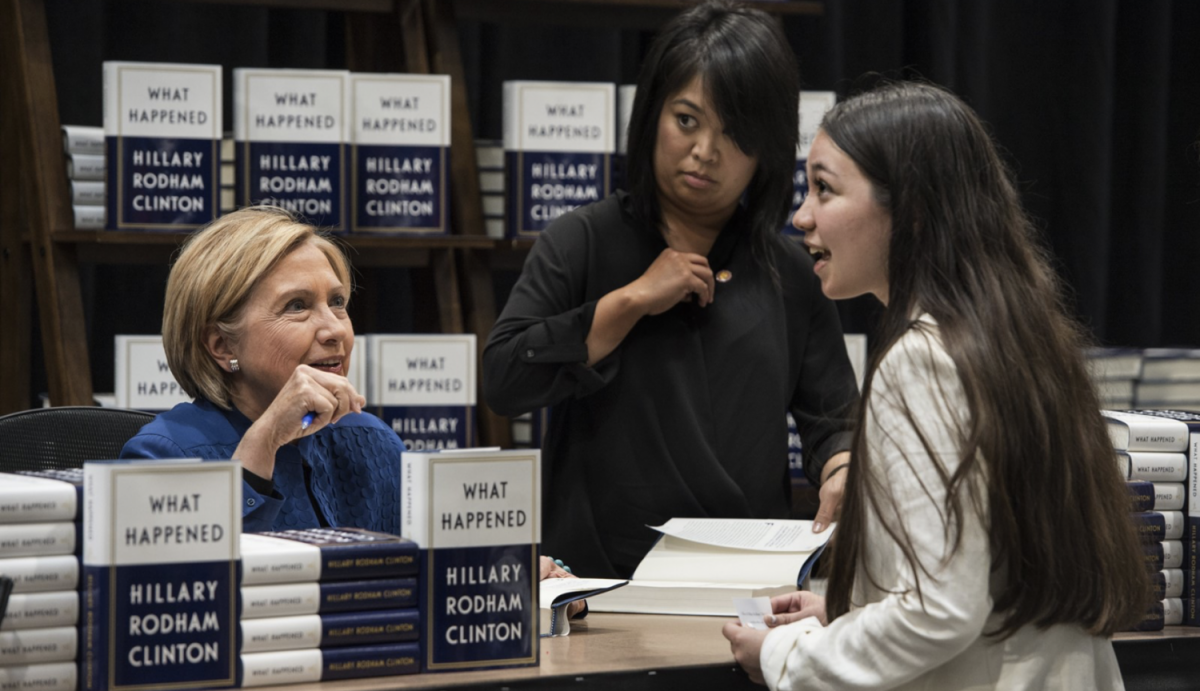Op Ed: ‘We are one America’
DHS alumna Lexie Prendergast talks with Hillary Clinton at her recent book-signing event at Costco in Brookfield. Clinton, a former first lady, senator, secretary of state, and two-time candidate for president, gave Prendergast her card.
September 24, 2017
On Nov. 9 of last year, I woke up with a feeling of dread. The night before, almost all the students from my liberal campus gathered together for “election watching parties.” As one of the executive board members of Wesleyan Democrats, I organized one of these “watch parties” for more than 50 people. Never did I truly expect that ours would end with tearful students huddled in corner of the room, reeling from a historic and unexpected election loss.
In the following months, I struggled alongside most of my country to understand what happened. Countless think pieces emerged in political newspapers, claiming to have found answers. Some thought that Hillary Clinton’s nomination was an error on behalf of the Democrat Party and that she was simply “unelectable” as a candidate. Others proclaimed that FBI interference and poor media practices resulted in her loss.
This past Saturday, I found myself camping outside the Brookfield Costco to listen to Clinton’s side of the story. The release of the former Secretary of State’s book, What Happened, along with her plans to partake in a national book tour were met with a fair amount of controversy. Nonetheless, as a young female with political aspirations, a 13-hour wait to see someone who pushed historical boundaries for women in politics seemed worth it to me.
The anxiety and excitement of the crowd was palpable as we finally entered the room where the book signing was to be held. Secretary Clinton emerged from black curtains in a striking blue blazer, waving to a joyous crowd. She was closely trailed by her staffers, one of whom included former Clinton campaign vice-chair Huma Abedin.
About 15 people were admitted from the line, and Secretary Clinton spent several minutes speaking with them. Among them, I noticed a beaming middle-aged women as well as two young boys alongside their father, listening attentively to her words. She thanked the attendees for coming, shook a few hands, and proceeded to sign their books.
I was part of the second group, though the wait seemed to last an eternity. Upon approaching her, I was the first to speak. I introduced myself as a sophomore at Wesleyan University in Middletown, Conn., but a Danbury native. I told her that I had worked for the United States Senate as a page for Democrat Sen. Chris Murphy, an experience that inspired me to go into politics.
At the beginning of this exchange, she signed books in continuous motion, occasionally glancing at me with a smile. The instant I mentioned to her that I was interested in running for public office, she froze and looked up at me intently. She stopped the entire line to tell me that she wanted to support young women interested in becoming politically active. At her request, one of her staffers stepped forward and handed me a card with information I could use to contact her office. She told me that one day she wanted to support my race, and mentioned that she would soon like to work with Wesleyan students to advance progressive values.
Secretary Clinton, who lives in nearby Chappaqua, didn’t have to stop that line to talk to me. She was no longer running for office; she had almost nothing left to lose. She could have come to Costco, sold her books and gone on her way. She took interest in me not because she knew she could profit from it, but from one woman to another—she wanted me to believe in the value of my dreams. She wanted me to know that I, too, had the power to make change, and that she would support me in any way she could.
Almost one year after the election, I no longer wake up with a feeling of dread in the pit of my stomach. It is difficult to watch policies that so fundamentally undermine my values become passed into law or signed by executive order. But there is a difference between difficulty and impossibility, and I know that the reversal of these policies is possible when people believe in the power of their voices. I know that I have the power to make change, and that as a woman in politics, I am valuable.
We are one America, regardless of gender, ethnicity, socioeconomic background or political beliefs. And we will always move onward together.
Editor’s note: Alexandra Prendergast, a sophomore at Wesleyan University, is a 2016 graduate of DHS. While a student here, she served as a U.S. Senate page for Sen. Chris Murphy in Washington, D.C., as a delegate to the U.S. Senate Youth and American Legion Girls Nation programs, and as a participant in the Yale Model Government in Europe Conference in Budapest, Hungary. The views expressed here are her own.




















